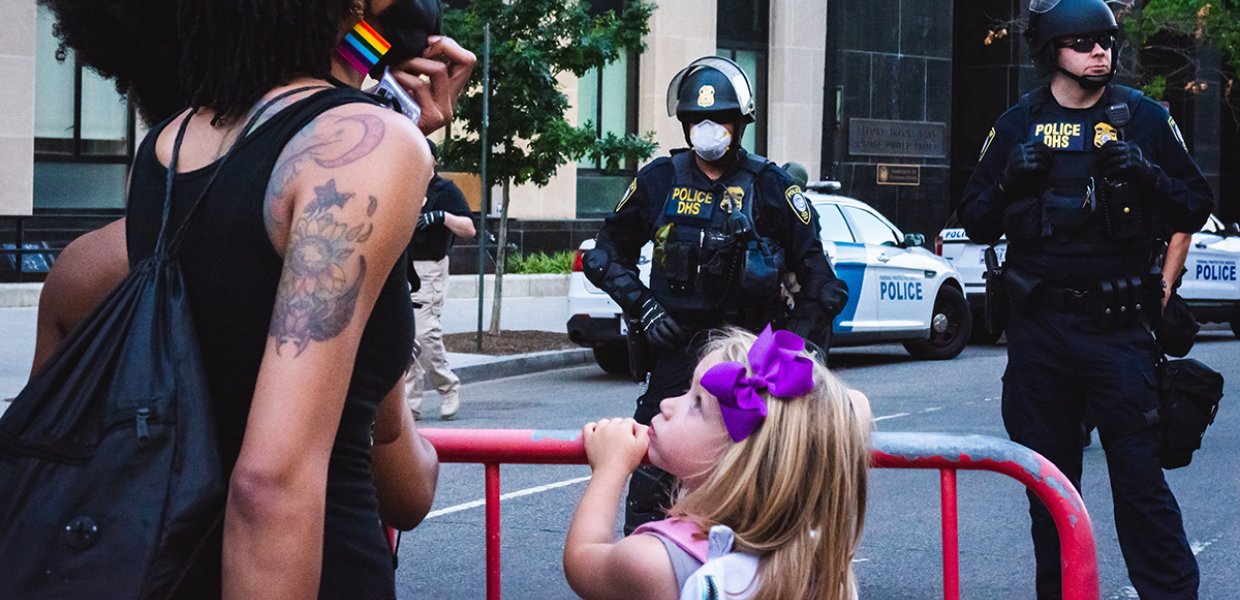As an institution of higher learning, we recognize the significance of this moment as one that demands radical change. It calls upon us to challenge our assumptions, assess the policies and practices upon which they are based, and fundamentally change our behaviors — institutional and personal.
Radical change is what we need, but what does radical truly mean? Latino media studies scholar and Director of USC Annenberg’s School for Communication Hector Amaya posed this critical question to our faculty this summer.
I am struck by the magnitude of considering what it means to be “radical” at this moment. What it means to bring our teaching, scholarship and practice to confront two pandemics: COVID-19 and racial injustice. And what it means to be confronting the increased polarization and erosion of civil discourse that also define this moment.
If ever there was a moment made for reaching across divides, this is it. We must face the challenge head-on, beginning at the root of the structures, practices and behaviors that reinforce racial injustice. As institutions and individuals, it is time to combat the structural racism embedded in our history and revealed with such devastating clarity and ferocity in our present.
This is why I am so pleased that USC Annenberg is involved with the Dialogue Project, an initiative supported by our school, businesses and other organizations, to help their people, and society, have more constructive conversations on difficult topics.
Institutions like business — including the business of higher ed — are well-positioned with resources and access to reach across this chasm, breaking through divides to facilitate dialogue and build community. Fortunately, a school for communication and journalism has some powerful tools at its fingertips.
Advancing our understanding of the profound changes brought on by technology and communication, reporting on and analyzing networks of communication and community, while speaking truth to power, is what we do. And this has never been more important than right now, as we re-examine our culture, our politics, our economy, our health and our very core values.
It begins with listening. Our students are using their voices to press for change and we are supporting them with platforms to amplify their message. In his essay posted on our Annenberg site and published in the Undefeated, college sophomore Reagan Griffin, Jr writes:
“Vocalize your support on social media. Talk with your families, particularly your younger siblings, about racism. Champion Black leaders and organizations your community. Demand justice for the victims of police brutality. Advocate on our behalf in the spaces where we are not and cannot be present.
Make it known that you will not tolerate injustice, even when it doesn’t directly affect you.”
Griffin, like so many of us, is watching words and action break down silos as Americans walk hand in hand at protests across the country. According to Pew Research, 67% of Americans say they support the Black Lives Matter movement. With roughly 20 million participants, BLM has become the largest social movement in American history.
Our scholars, too, are documenting the ways activists deploy tools of contemporary communication to build movements. With the publication of a timely and important new book, Bearing Witness While Black: African Americans, Smartphones, and the New Protest #Journalism, Professor Allissa Richardson speaks to the way Black activists, “continuing a tradition of using news to challenge racism,” are harnessing the power of mobile and social media, covering the news in their community, while documenting and confronting racism at a scope and scale that is unprecedented in its reach and impact.
A new podcast series created by Professor Fred Cook at the USC Center for Public Relations explores the ways in which activists are using contemporary tools of public relations to fuel social movements, including racial justice. In July, activist April Reign, who created the movement #OscarsSoWhite told him: “It’s imperative that the brands and the organizations that want to stand in solidarity do so not just with their statements, but also with their bottom lines, their financial statements.”
As we work to confront racial inequality and combat polarization, we must lean in to this transformative moment. Universities — like businesses — are uniquely equipped to listen across silos and respond with action and innovation that creates a more just and equitable future.
Neither is comfortable. Both are critical to our path forward.
